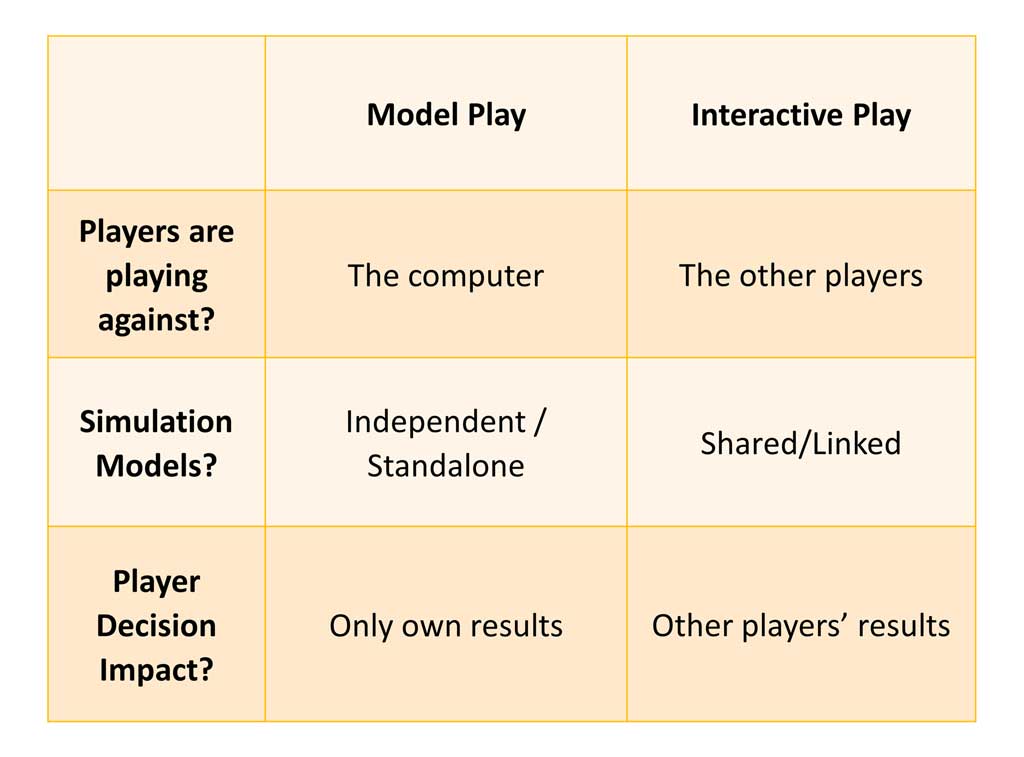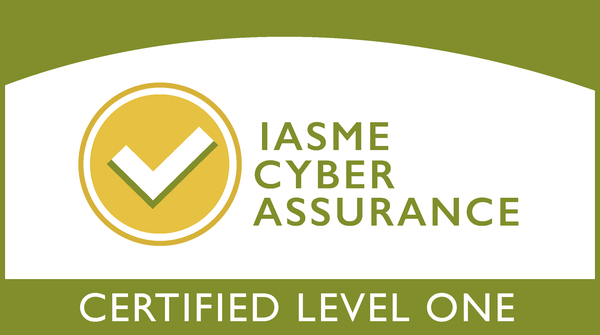There are two fundamentally different types of business simulation - Model Play and Interactive Play.
You should understand the difference between them so you can select the most useful one for that high impact learning session you are planning.
The table below provides a quick comparison of the main features of Model Play versus Interactive Play simulations:

Let us look at an example of Model Play and Interactive Play for the same topic – Business Acumen:
XSIM Business Simulation
This is a Model Play simulation where each player (usually a team) runs a business and tries to gain market share, deliver good profits, leave customers satisfied and staff happy. If six different teams are playing XSIM at the same time they can all grow market share simultaneously because they are not competing with each other in their separate simulations.
COMPETE Business Simulation
This is an Interactive Play simulation where, just like XSIM, each player (usually a team) runs a business and tries to gain market share etc. However if six different teams are playing XSIM at the same time they cannot all grow market share simultaneously because they are competing with each other in a shared simulation. They share the market between them as a fixed pie – if one player gains 5% then this must have come from the other 5 teams’ shares.
Which type of Simulation is best?
The answer to this question depends very much on your learning objectives for the simulation event!
Model Play simulations have three main advantages – Guaranteed Learning Experiences, greater depth/complexity and more cerebral.
Because no player directly impacts another in Model Play, you can offer a guaranteed learning experience whereas with Interactive Play one player making extreme (or silly) decisions can impact the performance and the learning of every other team.
With Model Play, you can also go into a topic in more depth that you can in Interactive Play. This is because, in Interactive Play, the players have to deal with one more level of complexity in trying to make sense of what is happening – was it something we did or was it something one of the other players did to us? For this reason Interactive Play simulations tend to be a bit simpler than Model Play simulations otherwise the players will not be able to make sense of what is going on – making it difficult to avoid becoming confused or bewildered.
Finally, Model Play simulations can be more demanding cerebrally and allow for more in-depth player briefings and pre-reading.
Interactive Play simulations have four main advantages – more social, more dramatic, more inclusive and easier to adapt:
Interactive Play simulations are naturally more social than Model Play simulations and lend themselves well to conversations between players about collaboration and competition.
Interactive Play simulations tend to be a bit more dramatic as each player wants to see what the other teams have done each round as it directly impacts them.
Interactive Play simulations are also lighter, inclusive to all types of personalities (not just deep analytics) and can often be played in a shorter time.
Finally because Interactive Play simulations tend to be less complex than Model Play they are easier to customise with extra logic, stages and briefing materials.
Conclusions
There are two very different types of business simulation for learning – Model Play simulations and Interactive Play simulations. Each type has its pros and cons which have been identified here. As a Learning Designer, you need to think through carefully which one will suit your learning group best.



